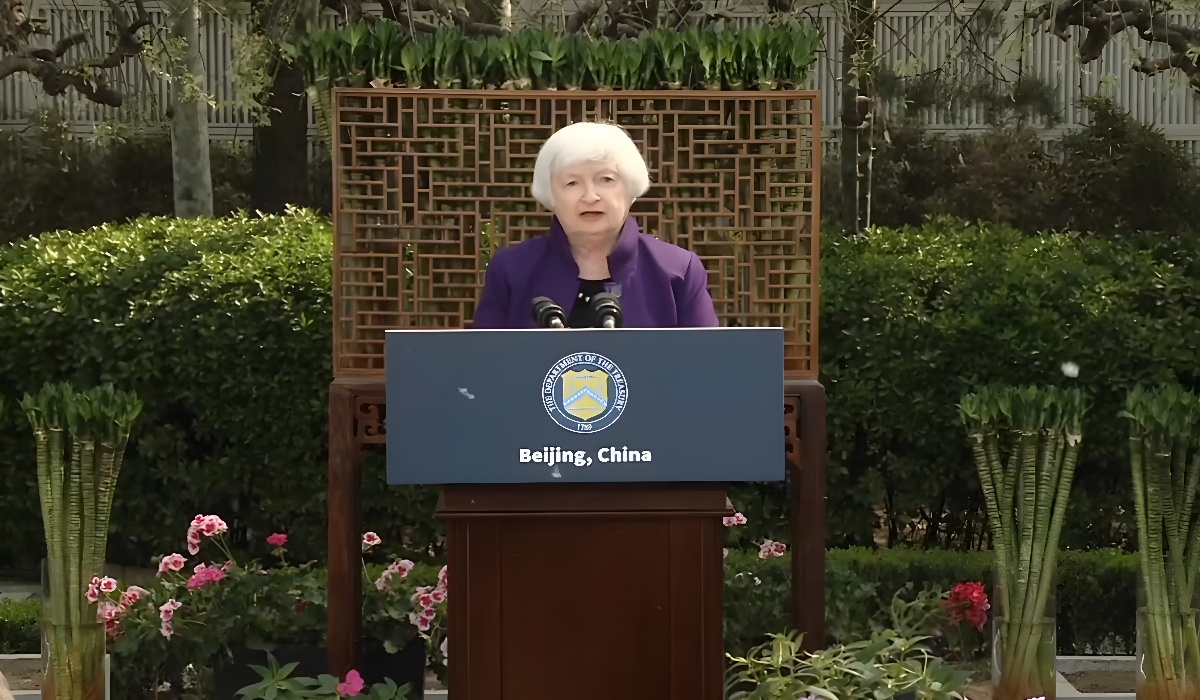In her recent address in China, Janet Yellen, the Secretary of the Treasury, adopted a combative tone that underscored the United States’ commitment to protectionism and national security interests. While Yellen painted a picture of a robust U.S.-China relationship, her rhetoric belied the underlying tensions and inconsistencies that define this complex dynamic.
Yellen’s speech was steeped in the language of economic diplomacy, emphasizing President Biden’s unwavering dedication to safeguarding American workers and firms. However, beneath the veneer of cooperation lay a stark reality: the United States has consistently sanctioned Chinese entities across various sectors, from EVs to microchips.
The assertion that China floods the U.S. with cheap products not only insults the Chinese people but also overlooks the symbiotic relationship between American manufacturers and their Chinese counterparts. Many U.S. companies rely on Chinese manufacturing facilities to remain competitive in the global market, blurring the lines between adversaries and partners.
Yellen’s visit to China was marked by expectations of a stern rebuke aimed at addressing trade imbalances and perceived injustices. However, her confrontational rhetoric only served to exacerbate tensions and undermine diplomatic efforts. By prioritizing U.S. interests at the expense of constructive dialogue, Yellen missed an opportunity to foster genuine cooperation and understanding.
The inconsistencies in Yellen’s approach highlight the challenges of navigating the U.S.-China relationship. While both nations acknowledge the importance of economic collaboration, divergent interests and competing priorities often hinder progress. Yellen’s insistence on asserting U.S. dominance only perpetuates the cycle of mistrust and animosity, further complicating efforts to find common ground.
As Yellen returns home, her visit to China serves as a stark reminder of the delicate balance between assertiveness and diplomacy. While the United States has legitimate concerns regarding trade practices and national security, a confrontational approach risks alienating key partners and undermining global stability. Moving forward, a more nuanced and pragmatic approach is needed to address the complexities of the U.S.-China relationship and promote mutual prosperity.









